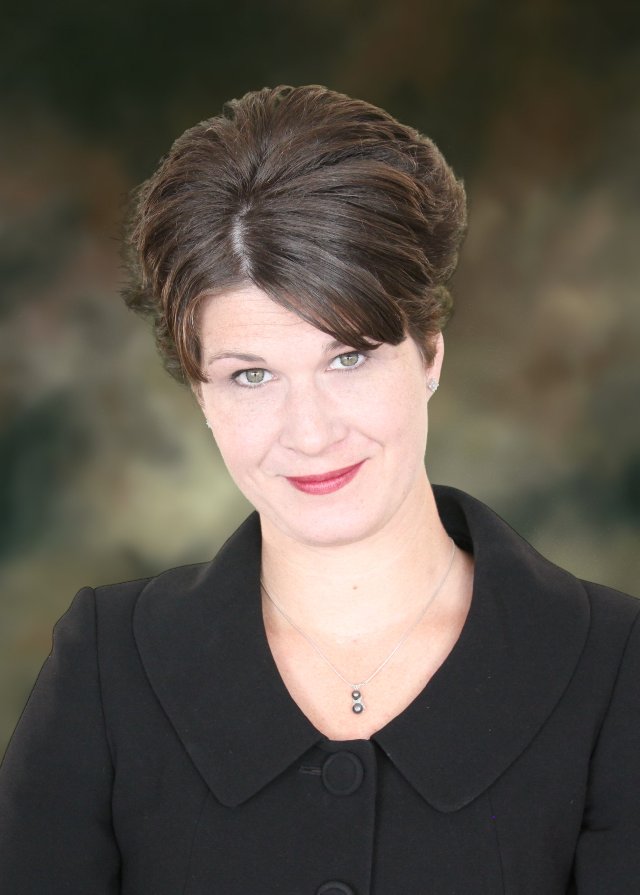 Appalachian Judicial Circuit District Attorney Alison Sosebee dropped charges against Mark Thomason and his lawyer, Russell Stookey, on Thursday. Sosebee sought grand jury indictments last month against the two at the request of Judge Brenda Weaver, for whom Sosebee served as a clerk in 2001 after law school.
Appalachian Judicial Circuit District Attorney Alison Sosebee dropped charges against Mark Thomason and his lawyer, Russell Stookey, on Thursday. Sosebee sought grand jury indictments last month against the two at the request of Judge Brenda Weaver, for whom Sosebee served as a clerk in 2001 after law school.Now that the criminal charges against a North Georgia journalist have been dropped, the questions he originally raised about his local government are back in the forefront.
Fannin Focus Publisher Mark Thomason, who was arrested last month after seeking bank account documents through a subpoena and open records request, said Thursday he intends to continue pursuing the information. In particular, he wonders why Superior Court Judge Brenda Weaver used public money to fund a private civil lawsuit against his newspaper, and why local county commissioners have no oversight of her account.
"We'll see where this leads," Thomason said Thursday, hours after Appalachian Judicial Circuit District Attorney Alison Sosebee said she would not prosecute him despite a grand jury indictment.
Sosebee wrote in a court motion that she was declining to prosecute Thomason or his attorney at the request of Weaver, the alleged victim in the case. Weaver, meanwhile, told Sosebee in a letter Wednesday that she felt the district attorney had more pressing criminal cases to worry about than the one against Thomason.
In the same letter, Weaver continued to attack Thomason's credibility.
"As a public official," she wrote, "I must expect not only false reporting in newspaper articles and television (which I have always understood), but I should ignore even blatant false allegations made in written emails to county commissioners."
At the request of Weaver, Sosebee presented a case to a grand jury on June 24 against Thomason and his attorney, Russell Stookey. The grand jury returned indictments against the two on counts of identity fraud and attempted identity fraud, saying that Thomason and Stookey attempted to get into Weaver's account, which they believe to be off limits.
The grand jury also indicted Thomason on a count of making a false statement for a records request he sent to Pickens County earlier this month, in which he asked for checks sent to Weaver's account that he believed were "cashed illegally." After Thomason's and Stookey's arrest last month, First Amendment and journalism foundations demanded that Sosebee drop the charges.
Origins of the case
The dispute between Thomason and Weaver started more than a year ago, with a different controversy. In March 2015, Superior Court Judge Roger Bradley told a story from the bench during a hearing in Fannin County Superior Court about a man he used to know named "[n-word] Bob."
Thomason wrote about Bradley's statement. A month later, when court reporter Rhonda Stubblefield released a transcript of the hearing, Thomason wrote a second article questioning the accuracy of Stubblefield's transcript. He said other witnesses in the courtroom reported that members of the Fannin County Sheriff's Office also used the racial slur, though those statements did not appear in Stubblefield's transcript.
Thomason filed an open records request for Stubblefield's audio recording of that court hearing. Stubblefield declined the request. Thomason then hired Stookey and filed a court motion, demanding the audio under the Open Records Act. A judge from outside the Appalachian Judicial Circuit listened to the audio and declined Thomason's request, saying the recording did not suggest Stubblefield's transcript was inaccurate.
Stubblefield, in turn, filed a $1.6 million libel lawsuit against Thomason, though she later dropped the case.
In November, Weaver wrote a letter to county commissioners, informing them that she was going to use her publicly funded operating account to pay for Stubblefield's legal expenses, which came to about $17,000. Stubblefield is not a county employee, and her legal fees are not covered by county insurance.
"People may agree or disagree as far as the payment of it," Weaver said during a Fannin County Tea Party Patriots meeting in February. "She had done absolutely nothing wrong. The court reporters are not required to have any insurance. I just did not think it was fair to her. We judges talked about it, to bear the expense of that."
After the meeting, Thomason filed an open records request with Weaver, asking for the checks she had sent to Stubblefield's lawyer.
"The judicial branch is not considered a 'government agency' for the purpose of the Open Records Act," Weaver wrote back on Feb. 12, declining his request.
Last month, after Stubblefield's lawyer argued in court that Thomason should actually have to pay for her attorney's fees instead of county taxpayers, Thomason and Stookey subpoenaed Weaver's operating account. Thomason also filed the records request with Pickens County, asking for checks they had sent Weaver for her account.
Sosebee, who served as Weaver's clerk in 2001 and later worked in the law practice of Weaver's husband, then sought criminal charges against Thomason.
County funds
The money for Weaver's operating account comes from the local governments of Fannin, Gilmer and Pickens counties, or at least some of it does. Fannin County Finance Director Rita Davis-Kirby said Weaver's account may also contain money from the state government, though it's not the county's business to know about Weaver's funds.
"Once we release our quarterly payment to the judges," she said, "they're free to use that money however they see fit."
Fannin County Commission Chairman Bill Simonds said the counties give Weaver money for her operating account four times a year and let her use it without oversight. He said that is standard practice in Georgia, pointing out that Whitfield County does the same thing.
But Whitfield County Administrator Mark Gibson said that is not true. He said judges present budget proposals to the county commissioners, with a breakdown of how the money will be spent. The commissioners then decide whether to award the judge the money he or she has asked for.
"That would be unusual for [judges] to have their own private accounts," he said. "We certainly wouldn't do it, I can tell you that. That's wild."
Catoosa County Manager Jim Walker and Dade County Executive Ted Rumley said their local governments also do not let superior court judges use operating accounts.
Gilmer County Commission Chairman Charlie Paris, who took office in the beginning of 2015, said he did not know how long his county had given Weaver her own private account. He said he wants to research the issue more before deciding whether to continue operating that way.
It's also unclear whether Weaver was allowed to use public money on a private lawsuit against the newspaper, said Jessica Gabel Cino, the associate dean for academic affairs for the Georgia State University College of Law.
"It seems to me the judge shouldn't just use the funds unless there is something on paper that enables her to do so," Cino wrote in an email, adding that Weaver has not made it clear whether she has specific jurisdiction to use the money in that manner.
Looking forward
Since the arrest, Thomason and the Georgia Society of Professional Journalists have filed complaints against Weaver with the Judicial Qualifications Commission, the state agency in charge of overseeing judges. Weaver also happens to be the chairwoman of that agency's board, appointed by the state supreme court.
It's unclear how the commission will react to the complaints. First, the Georgia constitution prohibits the agency from publicly commenting on investigations. Second, the agency's lone position for an investigator is unfilled. And third, the agency's board meetings are closed to the public.
Contact staff writer Tyler Jett at 423-757-6476 or tjett@timesfreepress.com. Follow him on Twitter @LetsJett.
